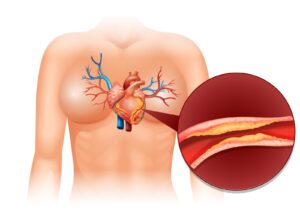Blood circulation is the lifeline of your body – it delivers oxygen, nutrients, and hormones to every cell and organ. When this system falters, your body sends out distress signals. Ignoring these red flags can lead to more severe health issues like heart disease, nerve damage, or even stroke. Here are 10 warning signs of poor blood circulation you shouldn’t ignore.
1. Cold Hands and Feet
One of the most common signs of poor circulation is chronically cold hands and feet. Your blood carries heat from your core to your extremities. If that flow is reduced, your fingers and toes might feel icy regardless of the room temperature. It’s more than just discomfort-it can be a sign of narrowed blood vessels or cardiovascular issues. If warming up doesn’t help or this is a persistent problem, it’s time to take it seriously.
2. Numbness and Tingling Sensations
Ever feel that “pins and needles” feeling even when you haven’t been sitting on your leg too long? If numbness or tingling hits your arms, legs, or feet frequently, it could point to circulation issues. The nerves in your limbs depend on proper blood flow to function. When blood supply is compromised, these nerves can malfunction, leading to unpleasant or alarming sensations. Chronic episodes are especially concerning and should be checked by a healthcare provider.
3. Swelling in the Lower Extremities
Swollen legs, ankles, or feet might seem like a minor annoyance, but it could mean your blood isn’t flowing properly. Poor circulation causes fluid to build up in your lower body a condition known as edema. This could be due to weakened valves in your veins or a heart that’s not pumping effectively. If you frequently see indentations from socks or shoes on your skin, that’s another clue your circulation may be off.
4. Fatigue or Lack of Energy
Are you feeling tired no matter how much sleep you get? Poor circulation might be to blame. When your muscles and organs don’t receive enough oxygen and nutrients from your blood, your body has to work harder to function—resulting in chronic fatigue. This sluggishness may not just be about being overworked or sleep-deprived. Persistent low energy can be a major indicator that your heart and blood vessels are underperforming.
5. Slow Healing Wounds
Cuts or bruises that take forever to heal could be a sign of compromised circulation. Blood is crucial for the healing process—it carries white blood cells and other immune helpers to the injury site. If circulation is impaired, your body’s healing process slows down, increasing the risk of infection. Diabetics especially need to watch for this sign, as poor circulation combined with high blood sugar can be particularly dangerous for wound healing.
6. Varicose Veins
Those bulging, twisted veins on your legs are more than just a cosmetic issue—they’re often a direct result of poor blood circulation. Varicose veins occur when blood pools in veins due to weakened valves, preventing it from flowing properly back to the heart. This pressure can cause veins to enlarge, making them visible through the skin. You might also experience aching, heaviness, or itching around the affected area. While common in older adults, varicose veins should not be ignored, especially if they are painful or worsening over time.
7. Chest Pain or Tightness
Chest discomfort can be a clear and urgent signal of poor circulation, particularly to the heart. When your coronary arteries are narrowed or blocked, less oxygen-rich blood reaches the heart muscle, causing chest pain,also known as angina. This symptom is often a warning sign of heart disease, and ignoring it could lead to a heart attack. If you ever feel tightness, squeezing, or a burning sensation in your chest, especially during physical activity, seek immediate medical attention.
8. Cognitive Issues or Brain Fog
Your brain needs a constant supply of oxygen-rich blood to function optimally. When blood circulation to the brain is reduced, it can affect your cognitive performance. You might notice memory lapses, difficulty focusing, or that “brain fog” feeling. Over time, chronic poor circulation may even increase your risk of dementia or stroke. If you’re finding it harder to think clearly or you’re often forgetful without an obvious cause, circulation issues could be at the root.
9. Digestive Problems
Believe it or not, poor blood flow can mess with your digestion. Your intestines require a robust blood supply to process food efficiently. Inadequate circulation can slow down your digestive tract, leading to symptoms like bloating, cramping, diarrhea, or even nausea. In more serious cases, it can cause ischemic bowel disease, where parts of the intestines don’t get enough blood and begin to die. This is a rare but life-threatening condition that requires urgent care.
10. Erectile Dysfunction (ED) in Men
ED can be more than just a sexual health issue, it might signal poor circulation. Achieving and maintaining an erection requires good blood flow. If circulation to the pelvic region is impaired, it can result in difficulty with sexual performance. Often, ED is one of the earliest signs of cardiovascular disease. That’s why it’s crucial not to brush it off as a normal part of aging. Talking to a healthcare provider can help uncover underlying problems before they become serious.
Conclusion
Your body is always speaking are you listening? The signs of poor blood circulation can show up subtly at first, but over time, they become harder to ignore. From cold extremities to cognitive issues and fatigue, these symptoms are your body’s SOS signals. If you’ve noticed any of these red flags, don’t wait until things get worse. Consult a healthcare professional, adopt a more active lifestyle, and keep your circulatory system in check. Remember, prevention is always better than cure.









